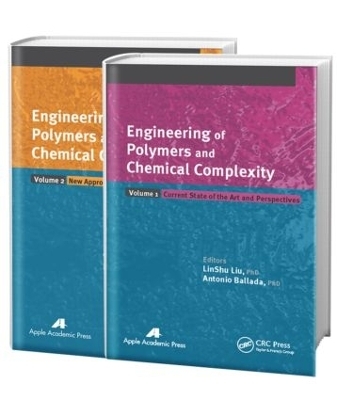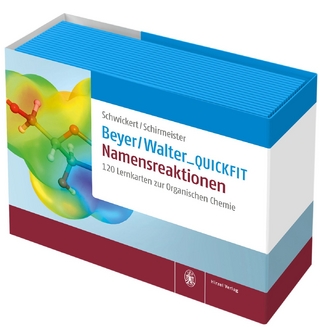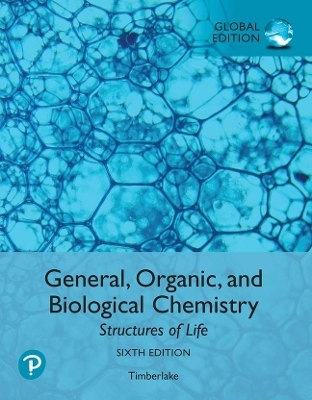
Engineering of Polymers and Chemical Complexity, Two-Volume Set
Apple Academic Press Inc.
978-1-77188-063-3 (ISBN)
Starting with a detailed introduction to the history of research on complex chemical systems and its current state of the art and perspectives, the books present chapters that survey the current progress in particular research fields. The chapters, prepared by leading international experts, create a fascinating picture of a rapidly developing research discipline that brings chemical technology and polymers to new frontiers.
These books provide innovative chapters on the growth of educational, scientific, and industrial research activities among chemists, biologists, and polymer and chemical engineers and provides a medium for mutual communication between international academia and the industry. Presenting significant research and reviews that report new methodologies and important applications in the fields of industrial chemistry, industrial polymers, and biotechnology, the books also cover chemical databases and the development of new computational methods and efficient algorithms for chemical software and polymer engineering.
LinShu Liu, PhD, is a research chemist of the Eastern Regional Research Center, Agricultural Research Service, US Department of Agriculture. He obtained his PhD from Kyoto University, Japan, in 1990, and he was a postdoctoral associate at MIT (Massachusetts Institute of Technology), Cambridge, Massachusetts, USA, from 1990–1992. His research interests fall in the areas of delivery systems from naturally occurring polymers for the controlled release of bioactive substances, functional composites from biomass or biobased materials, smart packaging technology and material, and biomedical devices for tissue regeneration, pharmaceutical, and cosmetic applications. Antonio Ballada, PhD, received degrees in industrial chemistry from Milano University and in business administration from Bocconi University, both in Milano, Italy. He has held many top positions in the chemical and pharmaceutical industries in Italy, USA, Taiwan, and China. He was CEO of Antibioticos SpA, and he was also responsible for the Catalyst and Additives Business Division at Basell, Inc., where he developed important relationships with the academic world involved in related R&D. He is executive vice president of FasTech SrL, a technology company, and is active in the elastomers and plastics industries. He is a member of the board of China Catalyst Ltd in Hong Kong and a member of the board of the Consultants Professional Association (APCO). Professor Walter W. Focke obtained his bachelor and master’s degrees in chemical engineering at the University of Pretoria and a PhD in polymer science and engineering from the Massachusetts Institute of Technology (MIT), Cambridge, Massachusetts, USA. He is a full professor in the Department of Chemical Engineering and director of the Institute of Applied Materials at University pf Pretoria in South Africa. He teaches materials science and engineering as well as phase equilibrium thermodynamics at the undergraduate level and polymer processing and polymer additive technology at the postgraduate level. Professor Focke is a registered professional engineer, a member of the American Chemical Society, the Polymer Processing Society, the International Pyrotechnics Society, and the South African Institute of Chemical Engineers. His research is focused on chemical product design with emphasis on carbon materials, polymer additive technology, pyrotechnics, and prophylactic malaria control. Various thermal analysis techniques are employed to characterize and control oxidative processes in pyrotechnics, biodiesel, and materials such as polymers and graphite. Professor Focke has published more than 90 papers in peer-reviewed journals. His current Scopus h-index is 8, and his publications listed in Scopus have been cited more than 1200 times. He is a member of the editorial boards of the Journal of Vinyl and Additive Technology, the International Journal of Adhesion & Adhesives, and International Polymer Processing. Professor Hans-Joachim Radusch is a full professor of polymer engineering at the Center of Engineering Science at Martin Luther University, Halle-Saale, Germany. He is a world-renown scientist in the fields of chemistry, physics and mechanics of polymers, polymer blends, polymer composites, and nanocomposites. He has published several books and 500 original papers and reviews in the above fields of science.
Engineering of Polymers and Chemical Complexity: Volume I: Current State of the Art and Perspectives. Preface. Hydrogel-Based Supports: Design and Synthesis. Thermal Properties of the Polypropylene/Multi-Walled Carbon Nanotube Composites.
Recent Advances In Polymeric Nanocomposites: Structure, Manufacture and Properties. Metal Nanoparticles in Polymers. Stability of Polymeric Products to Oxidizing and Hydrolytic Destructions. Polyelectrolyte Microsensors as a New Tool for Metabolites’ Detection. Activity of Liposomal Antimicrobic Preparations Concerning Staphylococcus Aureus. Polyelectrolyte Ensym-Bearing Microdiagnosticum: A New Step in Clinical-Biochemistry Analysis. CNT/Polymer Nano-Composites: A Detailed Review on Mathematical Modeling and Experimental Case Studies. Orientation Controlled Immobilization Strategy for Β-Galactosidase on Alginate Beads. Preparation, Characterization and Evaluation of Water-Swellable Hydrogel Via Grafting Cross-Linked Polyacrylamide Chains onto Gelatin Backbone by Free Radical Polymerization. Application of Physico-Chemical Methods in Monitoring of the Anthropogenic Pollution by an Example of Ceratophyllum Demersum L.. Complexities in Nanomaterials: Case Studies. Microstructures of Natural and Synthetic Graphite Powders (Microstructures of Graphite). A Nanofiller Particles Aggregation in Elastomeric Nano-Structured Composites: The Irreversible Aggregation Model. Index. Engineering of Polymers and Chemical Complexity: Volume 2: New Approaches, Limitations, and Control. Preface. Polymeric Nanocomposites: Structure, Manufacture, and Properties. Multi-Scale Modeling and Simulation of Dendritic Architectures: New Horizons. Emulsion Approach to Magnetic Nanocomposites. The Fractal Kinetics of Polymerization Catalyzed by Nanofillers. Soluble Block Copolyimides. Hyaluronan Degradation Under Free-Radical Oxidation Stress: Action and Healing. Magnetic Nanoparticles in Polymers. New Issues on Application of Metal-Organic Frameworks (MOFs) on Textiles. A New Approach for Optimization of Electrospun PAN Nanofiber Diameter and Contact Angle. Comparison of ANN with RSM in Predicting Contact Angle of Electrospun Polyacrylonitrile Nanofiber Mat. The Influence of Crystalline Morphology on Fractal Space Formation for Nanocomposites Polymer/Organoclay. The Fractal Model of Coke Residue Formation for Composites High Density Polyethylene/Aluminum Hydroxide. The Structural Model of Nanocomposites Poly(Vinyl Chloride)/Organoclay Flame-Resistance. Calculation of Efficiency of Sedimentation of Dispersion Particles in a Rotoklon on the Basis of Model of Hydrodynamic Interacting of Phases. Hyaluronan: A Harbinger of the Status and Functionality of the Joint. Polyvinylchloride Antibacterial Pre-Treated by Barrier Plasma. Index.
| Verlagsort | Oakville |
|---|---|
| Sprache | englisch |
| Maße | 152 x 229 mm |
| Gewicht | 1428 g |
| Themenwelt | Naturwissenschaften ► Biologie |
| Naturwissenschaften ► Chemie ► Organische Chemie | |
| Naturwissenschaften ► Chemie ► Technische Chemie | |
| Technik ► Umwelttechnik / Biotechnologie | |
| ISBN-10 | 1-77188-063-5 / 1771880635 |
| ISBN-13 | 978-1-77188-063-3 / 9781771880633 |
| Zustand | Neuware |
| Haben Sie eine Frage zum Produkt? |
aus dem Bereich

![Organic Chemistry plus Pearson Mastering Chemistry with Pearson eText [Global Edition] - Leroy Wade; Jan Simek](/media/110496757)
